The Art Of Transformation: How Makeup Alters Our Perception Of The Face
The Art of Transformation: How Makeup Alters Our Perception of the Face
Related Articles: The Art of Transformation: How Makeup Alters Our Perception of the Face
Introduction
With enthusiasm, let’s navigate through the intriguing topic related to The Art of Transformation: How Makeup Alters Our Perception of the Face. Let’s weave interesting information and offer fresh perspectives to the readers.
Table of Content
The Art of Transformation: How Makeup Alters Our Perception of the Face
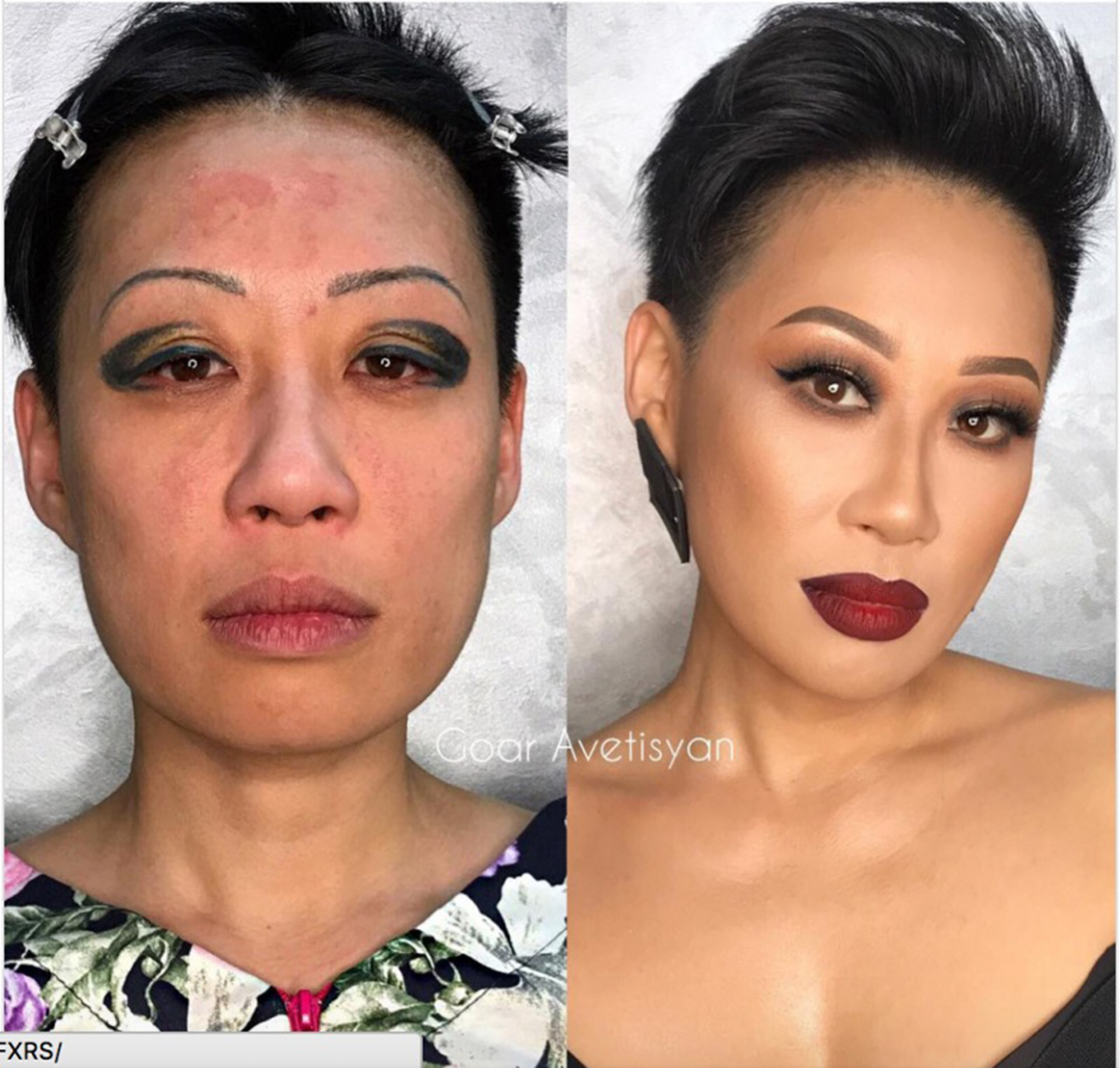
The human face is a canvas of expression, a tapestry woven with features that tell stories of our lives. But the face is also a subject of constant scrutiny, a source of both confidence and insecurity. Makeup, a tool as old as civilization itself, has long been employed to enhance, modify, and even transform the appearance of the face. This article delves into the fascinating world of makeup, exploring its multifaceted impact on our perception of the face, its historical and cultural significance, and its evolving role in contemporary society.
The Power of Perception: How Makeup Alters Our Visual Experience
Makeup’s impact on the face goes beyond mere beautification. It is a potent tool that can subtly or dramatically alter our perception of facial features, influencing our judgments and interpretations. The application of color, texture, and contouring techniques can:
- Enhance Features: Makeup can accentuate desirable features, making eyes appear larger, lips fuller, and cheekbones more prominent. This enhances the perceived attractiveness of the face, boosting self-esteem and confidence.
- Minimize Imperfections: Makeup can effectively conceal blemishes, dark circles, and uneven skin tone, creating a more flawless and youthful appearance. This can be particularly impactful for individuals with skin conditions or those seeking to minimize the signs of aging.
- Create Illusion: Makeup can be used to create optical illusions, altering the perceived shape and structure of the face. Contouring techniques, for instance, can sculpt cheekbones, define jawlines, and even make the nose appear smaller.
- Express Identity: Makeup can be a powerful tool for self-expression, allowing individuals to showcase their personality, style, and cultural influences. From bold, vibrant looks to subtle, natural enhancements, makeup can reflect a person’s unique identity and aspirations.
The Historical and Cultural Significance of Makeup
Makeup has played a significant role in human history and across diverse cultures, transcending its aesthetic function to serve as a symbol of status, ritual, and social identity.
- Ancient Civilizations: Ancient Egyptians, Greeks, and Romans used makeup extensively, employing pigments derived from natural sources for decorative and ritualistic purposes. Eye makeup, in particular, was a symbol of social status and spiritual significance.
- Medieval and Renaissance Europe: During this period, makeup was primarily associated with the aristocracy and upper classes. Pale skin, red lips, and rouged cheeks were considered signs of beauty and refinement.
- Modern Era: The 20th century saw a revolution in makeup, with the rise of mass-produced cosmetics and the emergence of influential makeup artists. Makeup became more accessible to the general public, evolving into a tool for self-expression and a key component of the fashion and beauty industry.
The Evolution of Makeup Trends and Techniques
Makeup trends are constantly evolving, reflecting changes in cultural norms, fashion, and technology. From the bold looks of the 1960s to the minimalist aesthetic of the 2010s, makeup trends have mirrored societal shifts and expressed evolving notions of beauty.
- The Rise of Minimalism: In recent years, there has been a growing trend towards natural-looking makeup, emphasizing skin health and a less-is-more approach. This shift reflects a desire for authenticity and a move away from heavily contrived looks.
- The Power of Social Media: Social media platforms like Instagram and TikTok have played a significant role in shaping makeup trends, with influencers and makeup artists sharing their creations and tutorials with a global audience. This has led to a democratization of makeup knowledge and a rise in experimentation with new techniques and products.
- The Inclusivity Movement: The beauty industry is increasingly embracing inclusivity, with brands developing a wider range of shades and products to cater to diverse skin tones, ages, and identities. This shift towards inclusivity is empowering individuals to embrace their unique beauty and find products that work for them.
The Impact of Makeup on Mental Health and Self-Esteem
The relationship between makeup and mental health is complex and multifaceted. While makeup can be a powerful tool for boosting self-esteem and confidence, it can also contribute to societal pressures and unrealistic beauty standards.
- Positive Impact: For many individuals, makeup can be a source of empowerment, allowing them to express themselves creatively and feel more confident in their appearance. It can help to mask imperfections, enhance features, and create a more polished look, leading to increased self-assurance and a sense of control.
- Potential Negative Impact: The constant bombardment of heavily edited images and unattainable beauty standards on social media can lead to body dysmorphia and feelings of inadequacy. This can create pressure to conform to unrealistic expectations and a sense of dissatisfaction with one’s natural appearance.
Navigating the World of Makeup: Tips and Considerations
Makeup, when used thoughtfully and responsibly, can be a powerful tool for self-expression, enhancement, and confidence. However, it’s essential to approach makeup with a critical eye and a healthy perspective.
- Embrace Your Natural Beauty: Remember that makeup is a tool for enhancement, not transformation. Focus on celebrating your unique features and finding ways to accentuate them, rather than trying to conceal them entirely.
- Experiment and Find What Works for You: Makeup is a form of artistry. Don’t be afraid to experiment with different products, techniques, and styles to find what makes you feel your best.
- Prioritize Skin Health: A healthy skincare routine is essential for achieving a flawless makeup application. Invest in quality skincare products and prioritize hydration, exfoliation, and sun protection.
- Be Mindful of Social Media: Social media can be a source of inspiration and education, but it can also create unrealistic expectations. Remember that most images are heavily edited, and strive for a balanced and realistic perspective on beauty.
FAQs about Makeup and its Impact on the Face
Q: Does makeup actually change the way I look?
A: Yes, makeup can significantly alter the way your face appears. It can enhance features, minimize imperfections, and even create optical illusions, altering the perceived shape and structure of your face.
Q: Can makeup be used to conceal skin conditions?
A: Makeup can help to minimize the appearance of certain skin conditions, such as acne, rosacea, and hyperpigmentation. However, it’s essential to choose products specifically formulated for sensitive skin and to consult with a dermatologist for personalized advice.
Q: Is makeup harmful to my skin?
A: Some makeup products can irritate sensitive skin. It’s crucial to choose hypoallergenic and non-comedogenic products that are free of harsh chemicals and fragrances. Proper application and removal techniques are also essential for maintaining skin health.
Q: Can makeup make me feel more confident?
A: Many individuals find that makeup boosts their self-esteem and confidence. It can help them feel more comfortable and attractive in their own skin, allowing them to express themselves creatively and embrace their unique beauty.
Q: How do I know what makeup looks good on me?
A: Experimentation is key! Try different products, colors, and techniques to find what complements your skin tone, eye color, and personal style. Don’t be afraid to seek advice from makeup professionals or beauty bloggers.
Conclusion
Makeup is a powerful tool that can enhance, transform, and express our individuality. It has evolved over centuries, reflecting societal norms and evolving notions of beauty. While makeup can be a source of empowerment and confidence, it’s crucial to approach it with a critical eye, prioritize skin health, and embrace a balanced perspective on beauty. Ultimately, makeup is a form of artistry that allows us to celebrate our unique features and express our individual identities.
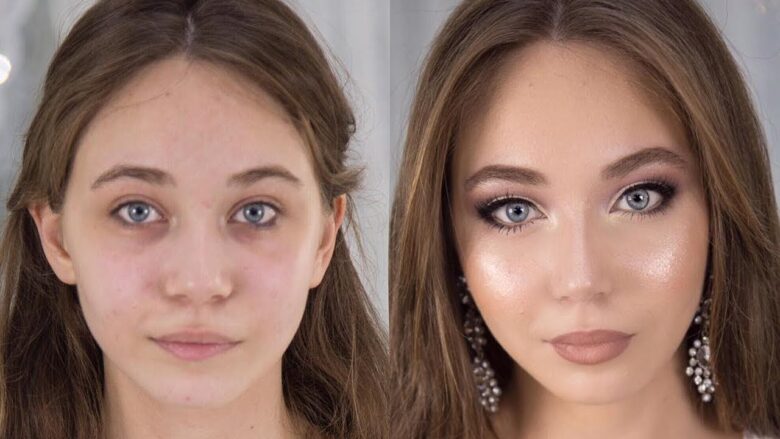
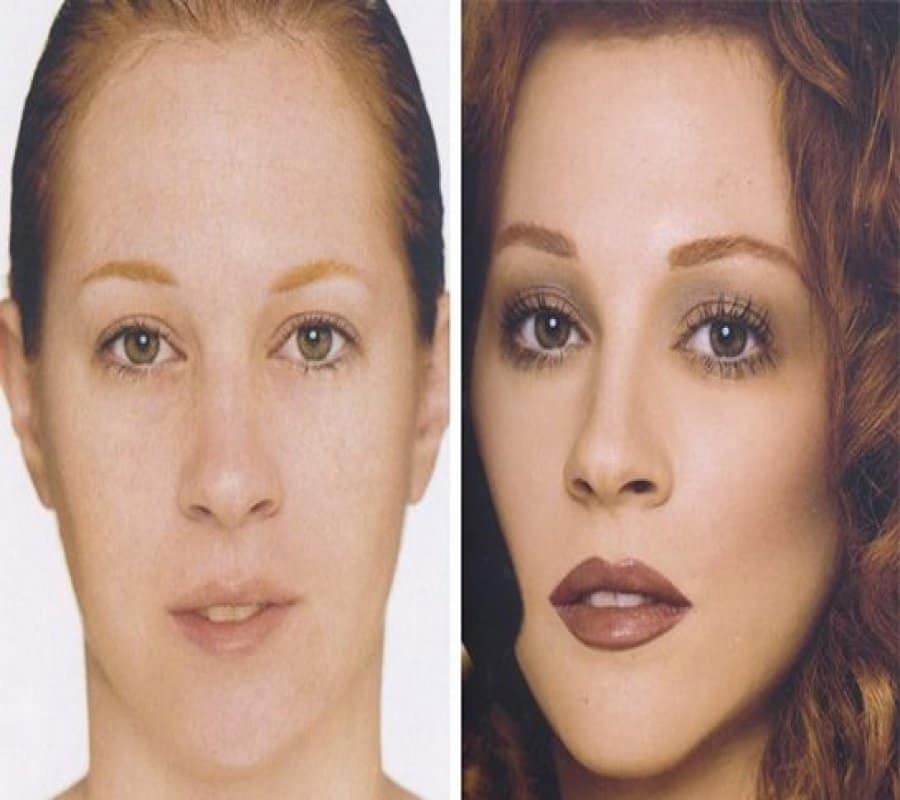
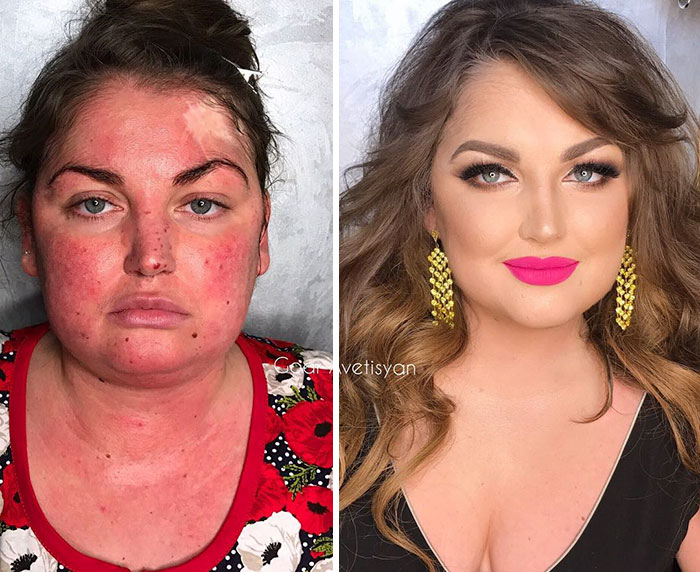
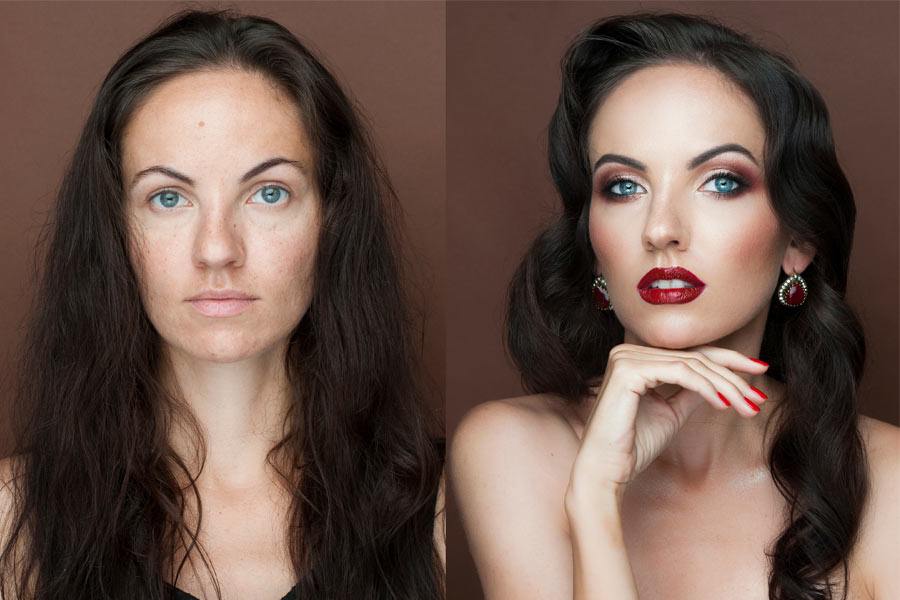

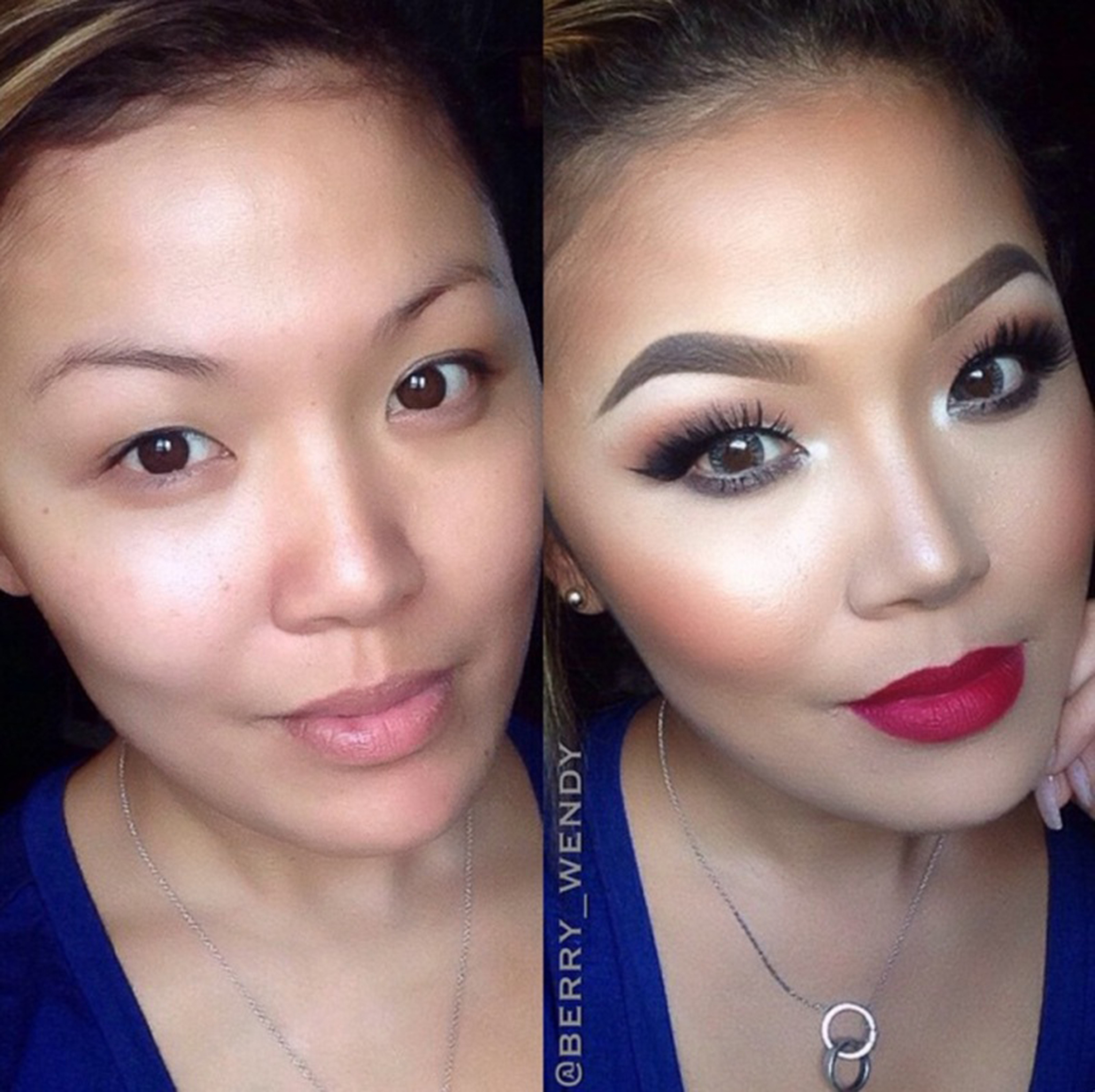


Closure
Thus, we hope this article has provided valuable insights into The Art of Transformation: How Makeup Alters Our Perception of the Face. We thank you for taking the time to read this article. See you in our next article!
You may also like
Recent Posts
- Mastering The Art Of Eye Makeup: A Comprehensive Guide To The Color Wheel
- The Art Of Enhancement: A Comprehensive Guide To Makeup
- The Ultimate Guide To Makeup Bags For Travel: Organization, Style, And Essential Considerations
- A Guide To Makeup At Walmart For Kids: Exploring Options And Considerations
- A Comprehensive Guide To Makeup Brands Beginning With C: From Classic To Cutting-Edge
- The Ultimate Guide To Finding The Perfect Makeup Chair: A Comprehensive Look At Kmart’s Offerings
- Navigating The World Of Makeup For Sensitive Skin: A Guide To Finding The Perfect Fit
- The Ever-Evolving Canvas: Exploring Makeup Designs Through The Decades
Leave a Reply